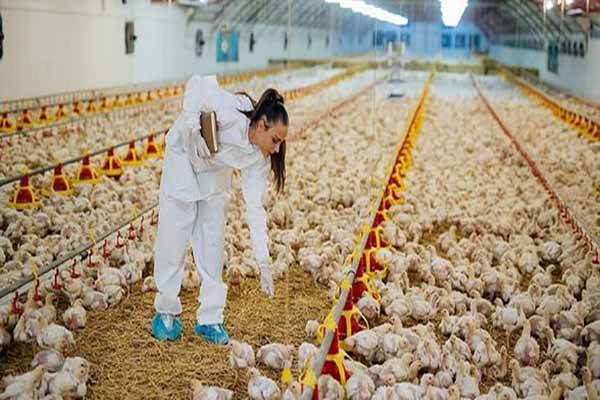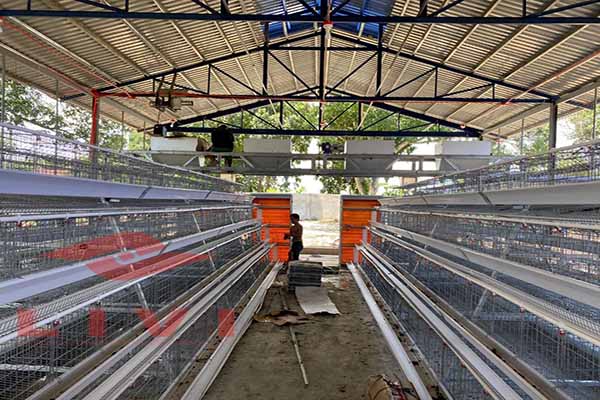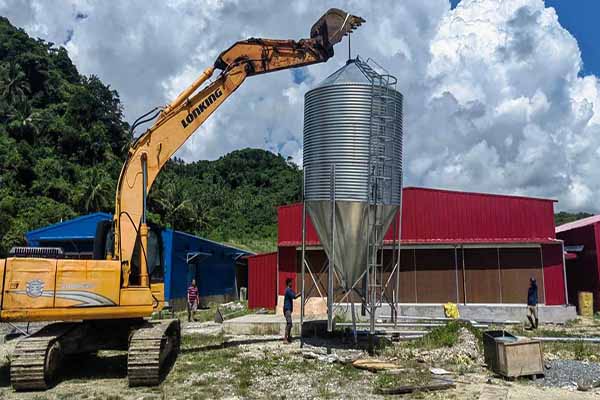Automated Feed Storage Equipment for Kenyan Chicken Farms: A Comprehensive Guide
Time : 2025-06-30
In the fast-paced world of modern poultry farming, efficiency and precision are key to success. One area that has seen significant technological advancements is the storage and management of feed for chicken farms. This article aims to provide a comprehensive guide on automated feed storage equipment tailored specifically for Kenyan chicken farms.
The Importance of Feed Storage Equipment
Proper feed storage is crucial for the health and productivity of chicken farms. In Kenya, where chicken farming is a vital component of the agricultural sector, ensuring that feed is stored effectively can lead to significant improvements in the farm’s profitability.
Preventing Feed Waste
One of the primary benefits of automated feed storage equipment is the reduction of feed waste. This is particularly important in Kenyan chicken farms where resources are often limited. By utilizing automated systems, farmers can minimize the risk of feed spoilage, which not only conserves resources but also reduces the environmental impact.
Ensuring Feed Quality
Automated feed storage systems also help maintain the quality of the feed. These systems are designed to protect feed from pests, moisture, and other environmental factors that can degrade its quality. This ensures that the chickens receive the best possible nutrition, leading to healthier birds and higher productivity.

Types of Automated Feed Storage Equipment
Conventional Feed Hoppers
Conventional feed hoppers are a popular choice for Kenyan chicken farms. These hoppers are made of sturdy materials and are designed to hold large quantities of feed. They a re typically equipped with a feed delivery system that dispenses feed as needed, ensuring a consistent supply to the chickens.
re typically equipped with a feed delivery system that dispenses feed as needed, ensuring a consistent supply to the chickens.
Bin Feeders
Bin feeders are another type of automated feed storage equipment. These are large bins that can store large amounts of feed. They are often equipped with a mechanical system that allows for the controlled release of feed, ensuring that the chickens always have access to fresh feed.
Feed Silos
Feed silos are the most advanced type of automated feed storage equipment. These large storage containers are designed to hold significant amounts of feed. They are typically equipped with a sophisticated control system that allows for precise feed distribution and can be connected to a farm’s management system for real-time monitoring.
Choosing the Right Automated Feed Storage Equipment for Kenyan Chicken Farms
Selecting the right automated feed storage equipment for a Kenyan chicken farm involves considering several factors, including the farm’s size, the type of chickens being raised, and the available budget.
Farm Size
For smaller farms, conventional feed hoppers or bin feeders may be sufficient. However, for larger farms, feed silos are the most suitable option due to their high storage capacity and advanced control systems.
Chickens Type
The type of chickens being raised can also influence the choice of feed storage equipment. For example, broiler farms require a system that can deliver a consistent supply of feed, while layer farms may benefit from a system that allows for controlled feeding to prevent overconsumption.
Budget
It’s also important to consider the budget when choosing automated feed storage equipment. While feed silos offer the most advanced features, they may not be the most cost-effective option for smaller farms. It’s important to find a balance between the farm’s needs and its budget.
Installation and Maintenance
Once the appropriate automated feed storage equipment has been selected, the next step is installation and maintenance. Proper installation ensures that the system operates efficiently, while regular maintenance helps prevent downtime and extends the lifespan of the equipment.
Installation
Professional installation is recommended to ensure that the automated feed storage equipment is set up correctly. This includes checking for any potential issues, such as improper alignment or inadequate support, and making any necessary adjustments.
Maintenance
Regular maintenance is crucial for the continued operation of automated feed storage equipment. This includes cleaning the storage containers, inspecting the mechanical systems, and ensuring that all components are functioning properly.
Conclusion
Automated feed storage equipment can significantly improve the efficiency and productivity of Kenyan chicken farms. By choosing the right system, ensuring proper installation and maintenance, and considering the specific needs of the farm, chicken farmers can reap the benefits of this advanced technology.












